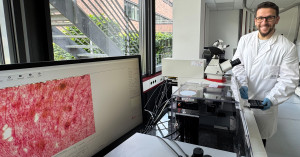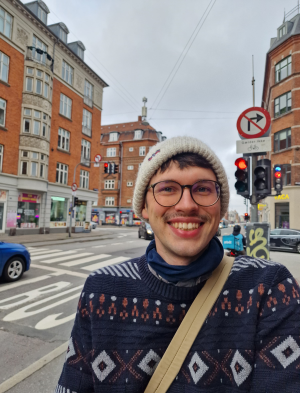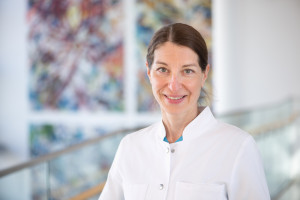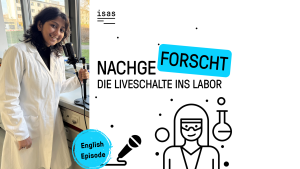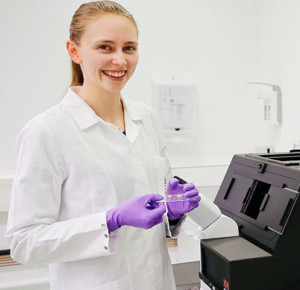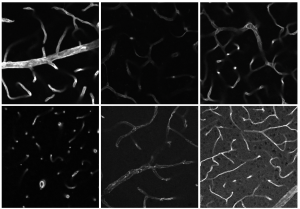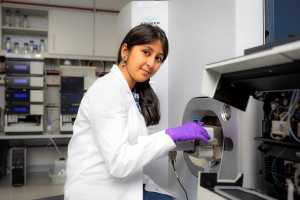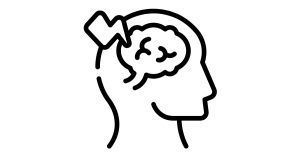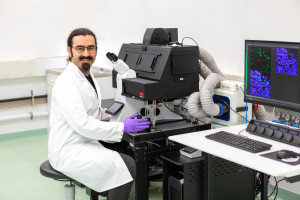Dortmund, 30th April 2025
At the Guangdong Cardiovascular Institute in China, everything revolves around the clinical application of artificial intelligence (AI) in the context of cardiovascular diseases for Prof Dr Xiaowei Xu. Since the beginning of March, the computer scientist has been conducting research as a Humboldt Fellow at ISAS in the AMBIOM-Analysis of Microscopic BIOMedical Images research group. Here, he is devoting himself to applied basic research for a total of 18 months: together with the AMBIOM team led by Dr Jianxu Chen, he wants to develop particularly efficient tools for analysing cell images.
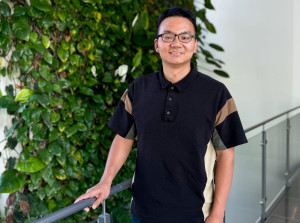
Prof Dr Xiaowei Xu is conducting research at ISAS for a total of 18 months. Prior to his research stay, he had already completed a language course in Frankfurt lasting several months.
© ISAS
Alexander von Humboldt Research Fellowships offer outstanding international researchers the opportunity to conduct research in Germany for a period of six to 24 months. The fellows choose the project and the host research institution themselves. It is no coincidence that Xu’s choice fell on a Leibniz institute: he was already fascinated by Wilhelm Gottfried Leibniz when he was at school and became interested in the philosopher and mathematician's legacy early on. Xu’s former research group leader from the University of Notre Dame in Indiana recommended ISAS specifically: “During my postdoctoral period with Prof Dr Yiyu Shi, I got to know Dr Jianxu Chen, who was doing his doctorate there at the time. The network has continued to this day, so I am now spending my research stay in his group,” reports Xu.
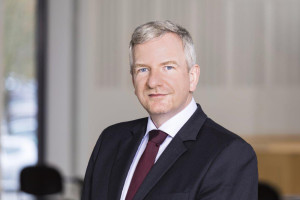
Prof Dr Xiaowei Xu brings an important, clinical perspective to our research work, which perfectly matches our thematic focus. We are very much looking forward to the coming months and are excited about our joint projects.
Prof Dr Albert Sickmann ISAS Chairman of the Board
From clinical to applied basic research
During his time at ISAS, Xu is developing AI methods for analysing cell images. He wants to compress both the algorithms and the images themselves - without losing key information. “Through suitable compression, we can save storage space and make data processing more efficient in real time,” reports the machine learning expert. Although he normally researches clinical issues at the Guangdong Cardiovascular Institute, for example in diagnostics, he sees parallels with applied basic research “The core methods and the logic of the AI models are basically exactly the same here at ISAS as they are in our clinic. It’s just the images which are different” summarises Xu.
ISAS Chairman of the Board Prof Dr Albert Sickmann is also pleased about the exchange: “Prof Dr Xiaowei Xu brings an important, clinical perspective to our research work, which perfectly matches our thematic focus. We are very much looking forward to the coming months and are excited about our joint projects.”
Networking plans at ISAS and throughout Europe
In Dortmund, Xu is not only looking forward to exploring the hiking trails in the area, but also to networking within the European research landscape and with the other ISAS working groups: “I am excited to accompany the young researchers in the AMBIOM group on their way into science,” reports the scholarship holder, “so far I have found the exchange among each other very enriching”. At the same time, he stays in touch with his own research group in China during his stay through regular video calls. “Although self-organisation and the ability to adapt to change are important skills in science, close contact with my group in China is still very important to me,” says the 37-year-old. However, contact with his family is much easier during his stay: his wife and children have accompanied him to Germany.
(Cheyenne Peters)
